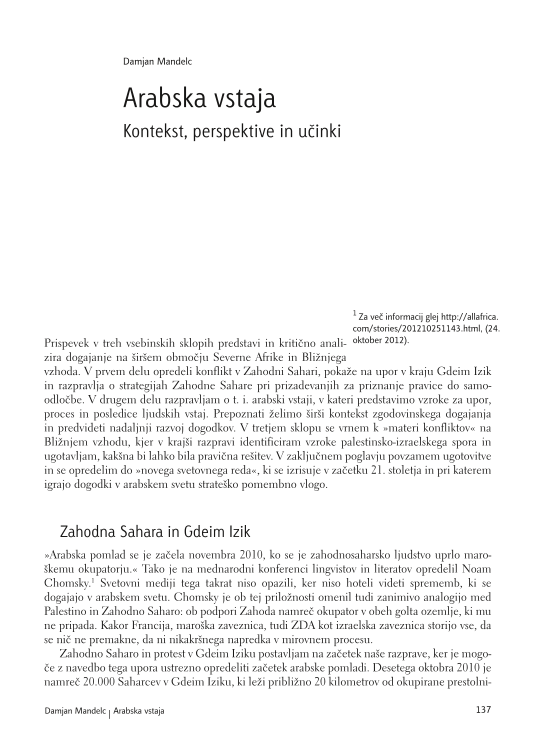In this article we discuss three interrelated topics, framed within discourses of individual and collective human rights, right of self-determination, democratic processes, people`s uprisings, and geopolitical (im) balances. First, we are interested in the situation of Western Sahara and the 37 years of ongoing Moroccan occupation; we refer to this country as Africa’s last colony. Discussion leads us to reflection of the political strategies of Sahrawis to achieve their national liberation, one of them being Gdeim Izik camp, understood by some relevant authors as the beginning of the »Arab spring«. The »Arab spring« is the second focus of our discussion. We offer a timetable and stress the context of events from the Western Sahara attempt in Gdeim Izik, popular uprisings in Tunisia, Egypt and Yemen that ended in the resignations of their leaders and governments, civil wars in Syria and Libya, to bigger and smaller protests and their consequences in Oman, Kuwait, Bahrain, Jordan, Morocco, Mauretania, Algeria, Sudan, Saudi Arabia, Iraq, Lebanon and Djibouti. We try to offer a deconstruction and reconstruction of the »Arab spring«. In the third part, we discuss the Israeli/Palestinian conflict and the perspectives for solution. The conclusion reflects on the strategic, social and political implications of the »Arab spring«, the role and response of the international community, and the new global wave of resistance against political and financial elites.




